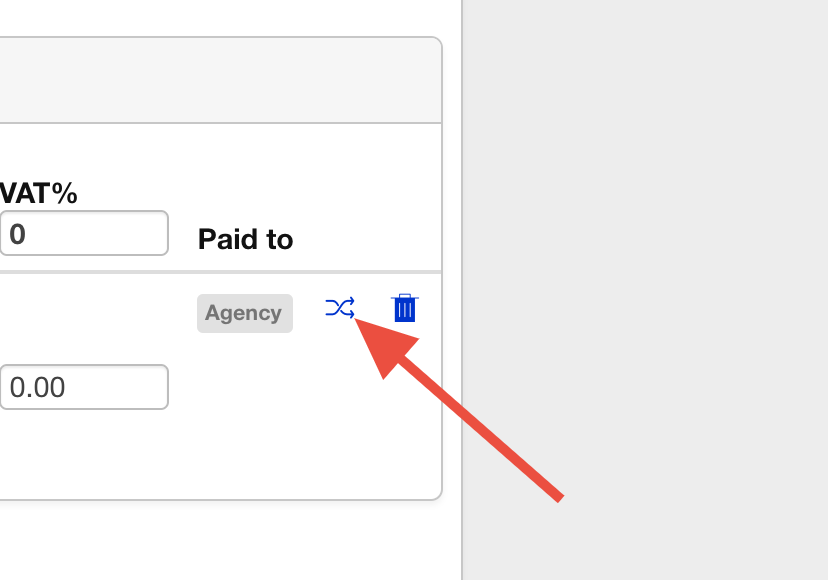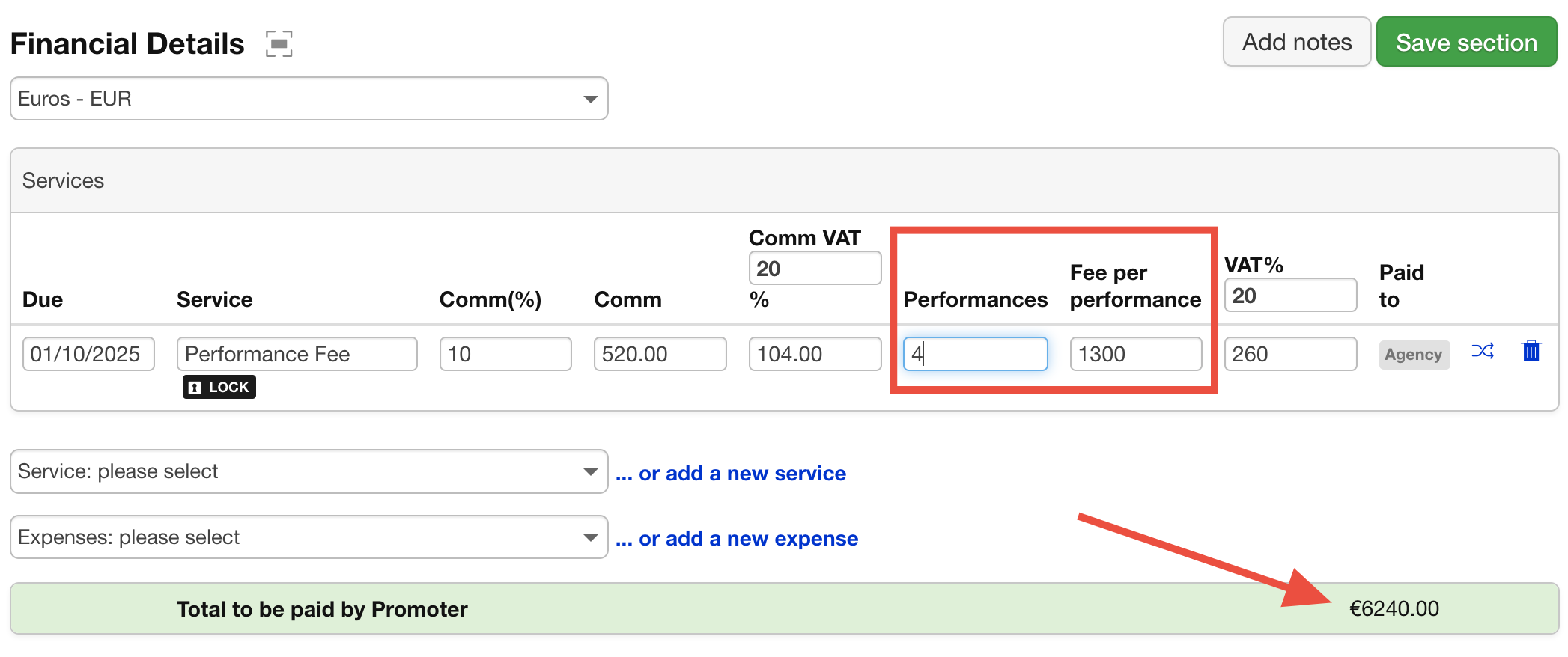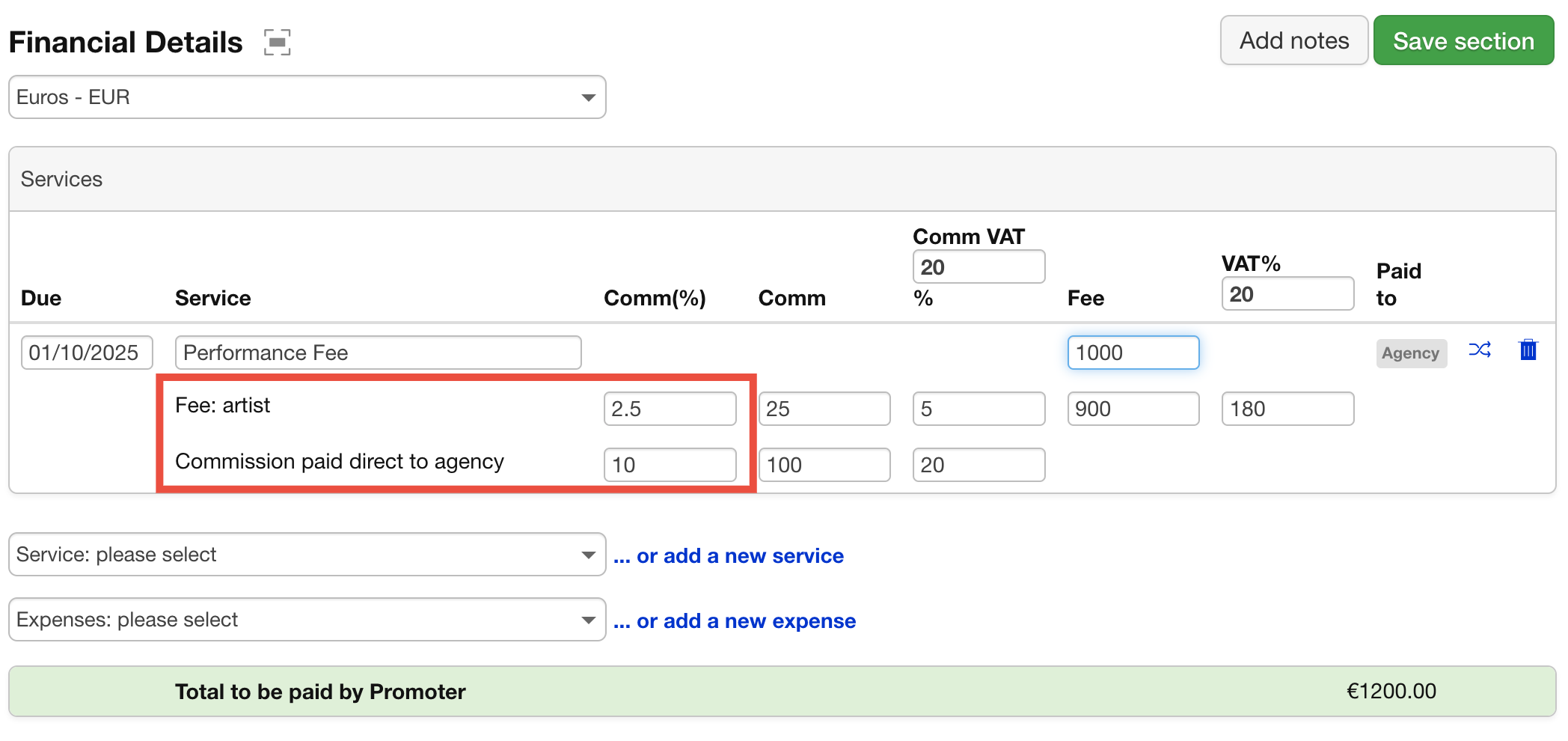In Overture, Deal Types are an essential part of setting up and managing bookings, as they define how finances are structured and tracked for each event. The chosen deal type impacts invoicing, commission calculations, artist payments, and reporting across the system. Here’s an overview of the main deal types and how they reflect throughout Overture.
Selecting Deal Types
To change the deal type in your financials section on a booking click on this icon. If you can’t see this icon it’s most likely that your screensize is narrow so you may need to scroll to the right in the service line section.

Commission Deals

A Commission Deal is where a percentage of the earnings from a booking is allocated as a commission to the agency or artist management team. When you set up a commission deal in a booking, Overture calculates the commission based on the agreed percentage and fee amount. This commission is reflected in the financial summary of the booking and impacts the invoicing and reporting sections.
In the Invoicing area, the system will generate invoices that show the commission as a separate line item, ensuring transparency between the agency and the artist or promoter.
In Reports, you can track total commissions earned over a period, per artist, or per agent, which is particularly useful for financial review and performance assessments.
Buy/Sell Deals

A Buy/Sell Deal, or often called ‘Landed Deals’ are structured as a fixed-price agreement where the agency buys the performance or event at one rate and sells it to the promoter at a different rate, usually for a profit margin. In this type of deal, the agency takes on the financial risk, as they pay the artist a fixed fee regardless of the revenue generated from ticket sales or other income sources.
With Buy/Sell deals, Overture records both the Cost Price (the amount paid to the artist) and the Sale Price (the amount charged to the promoter). This difference is recorded as profit, which you can track across the system in the Financials section of each booking and in Reports. In this option you can choose to add the Cost Price and Sale price manually or just enter ‘Your %’ and get Overture to calculate the rest of the details.
Fee Per Performance Deals

A Fee Per Performance Deal is commonly used when an artist performs multiple times for a single booking or event. In this deal type, the artist’s fee is calculated based on the number of performances rather than a single flat rate. For example, if an artist is scheduled to perform three times, Overture calculates the total fee as the set fee multiplied by the number of performances.
This deal type is beneficial for bookings such as classical bookings, festivals, residencies, or tours where multiple performances occur.
Split Commission Deal

Split Commission deals are primarily intended for bookings in countries where legal restrictions limit the amount of commission that can be paid directly to an agency. With a Split Commission deal type, you can divide the commission between the artist and promoter, allowing you to comply with local regulations while still receiving the intended commission amount. This structure ensures both compliance and effective revenue management for each booking.
Impact of Deal Types in Overture
Each deal type chosen for a booking in Overture affects the Invoicing, Artist Statements, and Reports. Depending on the deal type:
- Invoices are generated to reflect either a commission, fixed buy/sell structure, or total fee per performance.
- Artist Statements will show the correct earnings, commissions, or fees based on the structure of the deal, giving the artist a clear view of their earnings and any deductions.
- Reports, such as the Financial Summary or Commission Report, will provide insights into earnings, expenses, and profitability based on the deal type, which is essential for tracking the financial health of the agency or management company.
By carefully selecting the appropriate deal type, Overture users ensure accurate financial records and a streamlined process for invoicing, reporting, and payment distribution. Each deal type has been designed to support different scenarios and allows for flexibility in managing various types of engagements across the system.
